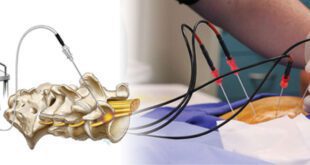By Michelangelo Mortellaro, P.A.
 Talk around the recreation tables at senior facilities – and family dinner tables for that matter – always seems to eventually revolve around someone spinning a tale about what they heard about Medicaid. Most times, the listeners take the storyteller’s circumstances and automatically apply them to themselves. They end up thinking their journey to Medicaid benefits will be similar. But the truth is, just as everyone’s financial situation is unique, so too is the path to qualifying for Medicaid in Florida. Few paths are exactly alike.
Talk around the recreation tables at senior facilities – and family dinner tables for that matter – always seems to eventually revolve around someone spinning a tale about what they heard about Medicaid. Most times, the listeners take the storyteller’s circumstances and automatically apply them to themselves. They end up thinking their journey to Medicaid benefits will be similar. But the truth is, just as everyone’s financial situation is unique, so too is the path to qualifying for Medicaid in Florida. Few paths are exactly alike.
Medicaid is the federally funded program administered by each state that provides monthly financial assistance to those who need help with healthcare costs. Each month the state has X number of dollars to provide to applicants. First, the applicants are assessed by staff from local agencies, then they are ranked in priority based on how at-risk they are. For example, someone who is injured in a fall, recovers in a rehab facility and is about to be discharged home has priority over someone who lives in an assisted living facility, where caregivers are at the ready 24/7. So some qualify as medically needy right away, while others go on a wait list.
Levels of care
In Florida, the Medicaid program is overseen by the Department of Children and Families. There are three basic levels within the long-term care program. All of these programs exist to provide financial support to those who need the assistance of another person with activities of daily living. These “ADLs“ are typically considered help with eating, bathing/showering, dressing, toileting, housekeeping, medication management and transportation to medical appointments, for example. The level of care is determined by that assessment.
Home care: If you live in your own home, in a family member’s home, or in an independent living community, you may be eligible for 10 to 40 hours of help a week. Again, the amount and type of assistance is determined by a face-to-face evaluation. If you had to private pay for these services, it could run you $800 to $3,200 a month, with the typical hourly rate averaging $20-$23 per hour. If you are on Medicaid, there is no copay or out-of-pocket expenses at this level. In fact, Medicaid will pay your Medicare Part A and Part B premiums. This could allow you to cancel your supplemental healthcare insurance for even more savings. You may even qualify for some community-based support, such as Meals on Wheels or new ramps and safety features in your home.
Assisted Living or Memory Care: The next level involves living in a facility, where typical ALF costs run $2,200 to $8,000 a month. If the facility you’re in has a contract with Medicaid and you qualify for the program, you’ll likely receive between $1,100 and $1,400 toward the overall care bill. You pay the difference, but that Medicaid assistance substantially reduces your cost and stretches the lifespan of your assets.
This is a good place to dispel a common misconception. Many people believe that staying in a facility that takes Medicaid means that they are in an inferior environment. Not true. In Florida, these facilities get their full retail price; it’s just subsidized, not substandard. There is nothing to feel bad about by choosing these facilities.
Nursing home: The top level of care is skilled nursing care. While each of us would like to avoid ending up here, in Florida, it is in fact better to be sicker. By that we mean that if you qualify for this level, Medicaid typically covers the entire facility bill, minus your income.
For example: Let’s say you get $1,500 a month in Social Security as income. You require nursing home care with therapy. The bill: $18,000 a month. But in Florida, if you are a Medicaid-qualified resident, you can keep $130 of that monthly income for personal needs. So the facility receives $1,370 of your income, then Medicaid covers the rest. When you consider that nursing home care, without therapy, averages $9,000 to $12,000 a month, this is a substantial benefit right away.
In Florida, there is a wait list for the first two levels above. The wait could be anywhere from two months to two years, depending on your situation. An experienced elder law attorney can present your circumstances in a way that could reduce your wait time.
But if you need a hospital stay then a stint in a rehabilitation facility, that is your fast pass to the front of the line. When you are in rehab or skilled nursing, there is no wait list. You are considered a high safety risk. You typically can receive Medicaid in about 30-60 days.
Income and Assets
In order to qualify for Medicaid in Florida, you do have to meet income and asset restrictions. In 2020, applicants must have less than $2,350 in gross monthly income. If you receive more than that and apply for Medicaid on your own, you would be denied. However, by using an elder law attorney, who drafts a Qualified Income Trust, the income overage problem easily is resolved.
The asset limit is just $2,000 in countable assets. We say “countable” assets because items such as your home and one vehicle are exempt. Now most people have more than $2,000 in checking, savings and retirement accounts, but an elder law attorney can show you legal and Medicaid-acceptable strategies to eliminate or reduce countable assets. Every case is dependent on the facts.
To sum it up, there is no such thing as too much income or too much in assets when you work within the system with a qualified elder law attorney.
Mortellaro Law has been qualifying Tampa Bay area seniors for Medicaid benefits for more than a decade. Call us today; our initial consultations are always free.
The Law Office of
Michelangelo Mortellaro, P.A.
13528 Prestige Place, Suite 106
Tampa, FL 33635
813-367-1500 | mortellarolaw.com
 Central Florida Health and Wellness Magazine Health and Wellness Articles of the Villages
Central Florida Health and Wellness Magazine Health and Wellness Articles of the Villages



